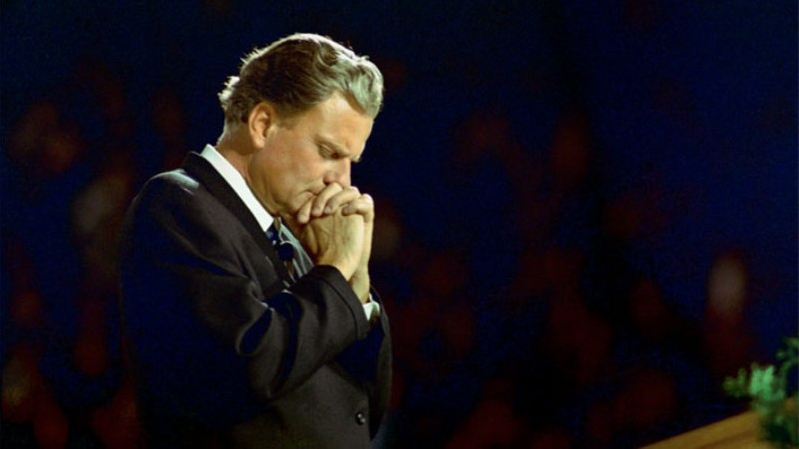
Rev. Billy Graham said while he doesn't believe prayer will return to public schools since it was barred five decades ago, he reminds there are other ways students can communicate with God throughout their school day. "When I was young, we used to pray and read the Bible in school every day, but my grandchildren aren't able to experience this, and it upsets me a great deal," stated the 97-year-old evangelist.
"Do you think we'll ever get back to the days when they allowed prayer in our public schools?" a grandparent recently asked Graham via a letter, emphasizing the absence of prayer and other religious practices within schools was troubling.
Graham's response noted that while the school prayer debate "is a complicated political and legal issue," he had three ideas for people to consider, reports Christian Post.
"First, no one can banish God from our hearts. If we truly know Christ, we know we can turn to Him in silent prayer no matter where we are," wrote Graham.
"Second, never forget the important place of our families in helping our children come to believe in God and rely on Him. No school or other institution can take the place of a family where God is honored and served."
Graham added that people still "need to remember to pray for our country."
Regarding the person who sent the letter, Graham stated: "The issue you mention here is only one sign of our nation's increasing drift from God. Pray for our nation and its leaders every day. The Bible says, 'Blessed is the nation whose God is the Lord,' (Psalm 33:12).
In 1962, the U.S. Supreme Court ruled in Engel v. Vitale that public schools could not officially sanction prayers, even if the prayer was voluntary in nature. "The majority stated that the provision allowing students to absent themselves from this activity did not make the law constitutional because the purpose of the First Amendment was to prevent government interference with religion," noted the United States Courts.
"The majority noted that religion is very important to a vast majority of the American people. Since Americans adhere to a wide variety of beliefs, it is not appropriate for the government to endorse any particular belief system."
It's been 54 years since the Supreme Court banned school-sponsored prayer, but God and faith are probably present in more ways now than ever in public schools, state many law and religion experts and activists, according to The Christian Science Monitor.
"We've gone from virtual silence about religion in the curriculum and virtually no student religious expression in many schools," said Charles Haynes, a scholar at the First Amendment Center and head of the Religious Freedom Education Project in Washington, D.C., "to today, when social studies and other standards are fairly generous to religion, and students are expressing their faiths in many different ways in many public schools, if not most."
Public schools and their staffs cannot violate the Establishment Clause of the U.S. Constitution by fostering religious beliefs, however they also can't stifle students' constitutionally protected freedom of speech and free exercise of religion.







